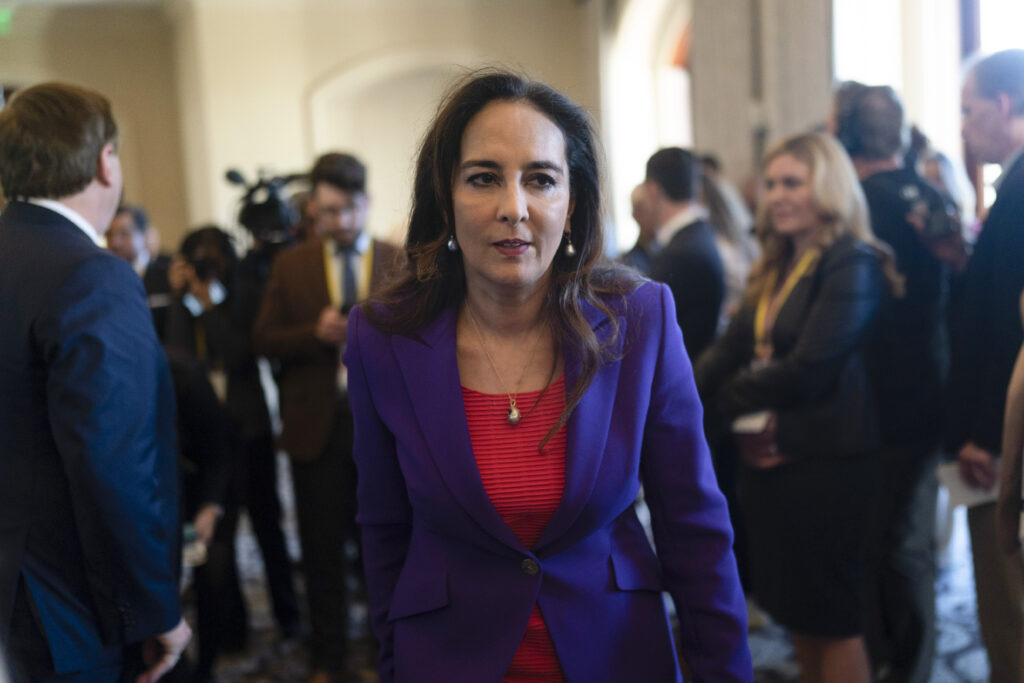Trump’s DOJ to Focus on Voter Fraud, Not Voting Rights

The U.S. Department of Justice (DOJ) is quietly dismantling its voting section and refocusing it to target voter fraud.
The new direction is alarming those familiar with the department’s history of protecting voting rights.
“What is going to happen when they start bringing voting fraud suits right in the middle of an election?” asked Joseph Rich, a longtime former attorney in the DOJ’s civil rights division, who served as chief of the voting section from 1999 to 2005.
The Guardian reported Monday that appointees of President Donald Trump reassigned the managers of the voting section to other arms of DOJ, and directed all attorneys to dismiss active voting rights cases.
As Democracy Docket has been tracking, DOJ has been withdrawing from Biden-era voting rights cases piecemeal since Trump returned to the White House — including challenges to voter suppression measures in Georgia and Virginia, among others.
Still, according to Democracy Docket’s litigation tracker, DOJ remains involved in at least 29 voting rights or redistricting cases across 18 states. If the department formally withdraws from all those cases, it could further weaken enforcement of voter protections nationwide.
These drastic changes to the voting section come amid a larger shake up in the civil rights division, with multiple outlets reporting that more than 100 attorneys and staff in the civil rights division are expected to resign in the coming week.
Shortly after she was confirmed by the U.S. Senate as assistant attorney general leading the civil rights division, the anti-voting lawyer Harmeet Dhillon reportedly issued new internal mission statements to each section of the division, refocusing priorities away from its longtime goal of enforcing civil rights laws and protecting the rights of marginalized groups.
“The mission of the Voting Rights Section of the DOJ Civil Rights Division is to ensure free, fair, and honest elections unmarred by fraud, errors, or suspicion,” the new mission statement reads, according to reporting from The Guardian. “The Section will work to ensure that only American citizens vote in US federal elections and do so securely. Other section priorities include preventing illegal voting, fraud, and other forms of malfeasance and error. All attorneys within the Voting Section will advocate with zeal on behalf of the United States of America in furtherance of all objectives as tasked.”
The voting section has historically been the federal government’s chief enforcer of voting rights, bringing cases under the Voting Rights Act and other voter protections.
The DOJ declined to comment to Democracy Docket on the voting section’s new mission statement and reassignments.
For the civil rights division to investigate and bring claims of voter fraud is a major shift for the DOJ, according to Rich.
“Voting fraud was enforced by the criminal division,” he told Democracy Docket. “There was a special unit that did voting fraud cases, and there were very few of them.”
Rich said he’s worried about how the voting section’s new mission might impact the next election — especially given how hard Trump is trying to disenfranchise voters.
“What does that mean for the elections coming up?” Rich said. “What is going to happen when they start bringing voting fraud suits right in the middle of an election, or even close to an election? The policy of the department is to never take steps before an election.”
There’s some recent precedent for the effort to use the Justice Department to target fraud. Under President George W. Bush, the White House pressured DOJ to fire several U.S. attorneys, in part for failing to pursue voter fraud cases. After a congressional probe revealed details of the scheme, Attorney General Alberto Gonzales (R) resigned.
Cumulatively, Rich believes the current shakeups at the DOJ amount to a coordinated effort to destroy the civil rights division — which has historically been the “crown jewel” of the department.
“It just seems to me, right now, it’s being wiped out,” he said. “And I expect that they’ll be hiring an awful lot of new attorneys that are not interested in enforcing the traditional civil rights laws. You may someday get rid of this administration, but how do you put it back together?”